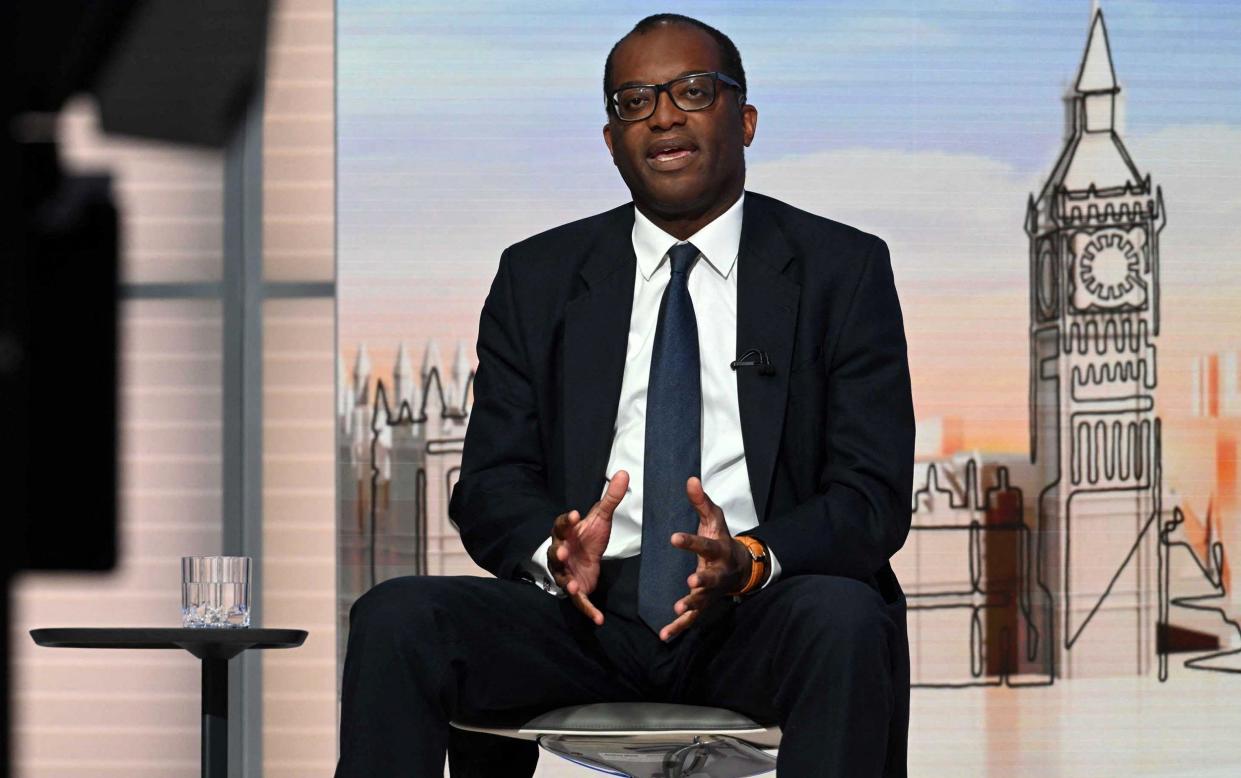Public borrowing costs soar as markets punish Kwarteng

- Oops!Something went wrong.Please try again later.
UK government borrowing costs have soared above 4pc for the first time in more than a decade as a historic rout on bond markets in the wake of Kwasi Kwarteng’s mini-Budget deepens.
Investors continued to dump UK debt on Monday morning after being spooked by the Chancellor’s plans to ramp up borrowing to pay for £45bn of tax cuts and rising expectations of rapid Bank of England interest rate rises.
The benchmark 10-year gilt yield jumped as much as 0.35 percentage points to a 12-year high of near 4.2pc and is on course for the biggest rise in a month since at least 1957. The two-year yield soared by an additional 0.5 percentage points to 4.4pc.
The huge jump in recent days will boost the cost of borrowing for the Government at a time when it plans to sell an extra £72bn of gilts to pay for the tax cuts.
Policy shifts and rising debt costs “will add around £14bn a year to borrowing by 2026-27,” analysts at the Resolution Foundation said, “and come in the context of a fiscal statement which saw total borrowing rise by over £400bn over the next five years."
The Chancellor refused to bow to market pressure on Sunday and on Monday told investors to wait for his “medium-term fiscal plan” and new borrowing rules which will come at the end of November, signalling he wants to make more tax cuts to spur growth.
Investors are growing increasingly concerned about the new riskier direction of fiscal policy in the UK, sending gilt yields soaring and triggering a plunge in the pound to record lows.
The cost of insuring against the UK Government defaulting on its debt has also soared in recent weeks amid jitters over the shift in fiscal policy. Credit default swaps have jumped to their highest level since the early stages of the pandemic with costs more than doubling since mid-August.
The sell-off in UK debt has been fuelled by market fears that the Bank of England will be forced to raise interest rates to over 5pc to fight the inflationary effects of Mr Kwarteng’s package - though the Bank sought to rule out any emergency meeting or rate decision before the Monetary Policy Committee’s next scheduled gettogether in November. It comes as the Bank also plans to sell around £40bn of UK bonds bought during quantitative easing over the next 12 months.
City analysts said an interest rate rise would send a powerful signal to markets, which the Bank risks foregoing in its statement that policymakers “will make a full assessment at its next scheduled meeting of the impact on demand and inflation from the Government’s announcements, and the fall in sterling, and act accordingly”.
Paul Dales, UK economist at Capital Economics, said: “By bringing forward a lot of the policy tightening that might need to have happened anyway, the Bank would demonstrate in no uncertain terms that whatever the Government does it will ensure that inflation returns to 2pc. This would go a long way to easing the crisis.
“A common thread here is that in all outcomes, the UK will face higher interest rates, continuing concerns about long-term fiscal sustainability and the gradual realisation that a period of tighter fiscal policy will be needed further down the line.”

